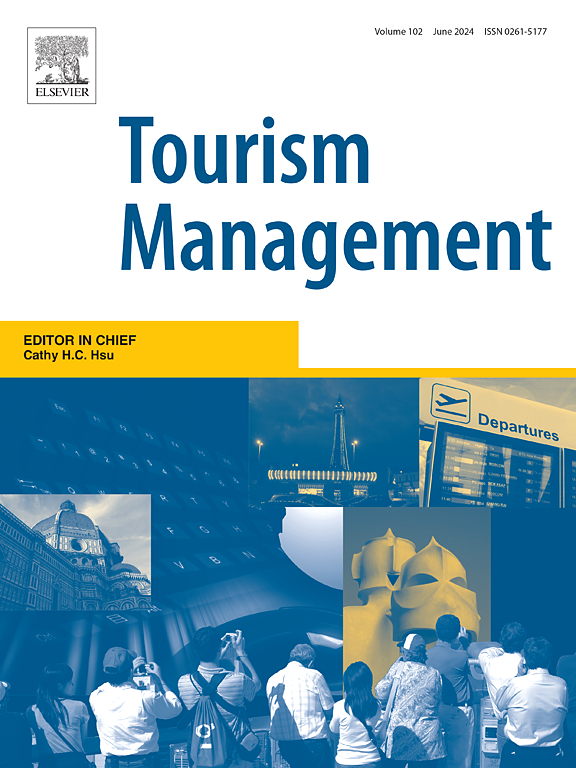Does effective tourism management require collective action? Evidence from industry, community, and government stakeholders on shark dive ecotourism
IF 12.4
1区 管理学
Q1 ENVIRONMENTAL STUDIES
引用次数: 0
Abstract
This article challenges the mantra that collective action of stakeholders is necessary to deliver effective tourism management that generates positive environmental, social, and economic impacts. It investigates the extent of, and necessity for, collective action among stakeholders involved in the shark diving ecotourism industry in Fiji. The industry exhibits high competition between operators, while its conservation impacts are being undermined by fishing. Interviews with industry, community, and government stakeholders reveal historical rivalries, weak regulations, variable operating practices, and divisive views on marine protected area (MPA) status for dive sites. Results demonstrate that expecting collective action from stakeholders in a competitive ecotourism industry is unrealistic; yet, despite limited coordination, cooperation, and collaboration, the industry is still able to achieve positive impacts. Nevertheless, greater collective action between operators, and between operators as a collective and other stakeholder groups, could help optimise business risk mitigation, tourist user fees, and advocacy for sustainable fisheries.
有效的旅游管理需要集体行动吗?来自行业、社区和政府利益相关者关于鲨鱼潜水生态旅游的证据
这篇文章挑战了利益相关者的集体行动是必要的,以提供有效的旅游管理,产生积极的环境,社会和经济影响。它调查的程度,和必要性,参与鲨鱼潜水生态旅游业在斐济的利益相关者之间的集体行动。该行业在经营者之间表现出激烈的竞争,而其对保护的影响正受到捕鱼的破坏。对行业、社区和政府利益相关者的采访揭示了历史上的竞争、薄弱的法规、多变的操作实践以及对潜水点海洋保护区(MPA)地位的分歧看法。结果表明,在竞争激烈的生态旅游行业中,期望利益相关者采取集体行动是不现实的;然而,尽管协调、合作和协作有限,该行业仍然能够产生积极的影响。然而,经营者之间以及作为一个集体的经营者与其他利益相关者群体之间更广泛的集体行动,可能有助于优化商业风险缓解、旅游用户收费和倡导可持续渔业。
本文章由计算机程序翻译,如有差异,请以英文原文为准。
求助全文
约1分钟内获得全文
求助全文
来源期刊

Tourism Management
Multiple-
CiteScore
24.10
自引率
7.90%
发文量
190
审稿时长
45 days
期刊介绍:
Tourism Management, the preeminent scholarly journal, concentrates on the comprehensive management aspects, encompassing planning and policy, within the realm of travel and tourism. Adopting an interdisciplinary perspective, the journal delves into international, national, and regional tourism, addressing various management challenges. Its content mirrors this integrative approach, featuring primary research articles, progress in tourism research, case studies, research notes, discussions on current issues, and book reviews. Emphasizing scholarly rigor, all published papers are expected to contribute to theoretical and/or methodological advancements while offering specific insights relevant to tourism management and policy.
 求助内容:
求助内容: 应助结果提醒方式:
应助结果提醒方式:


